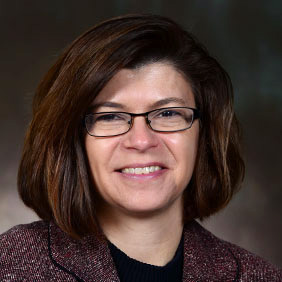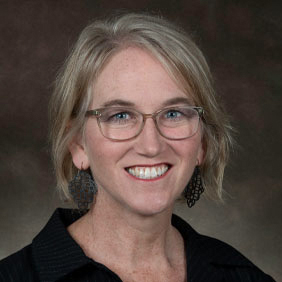At Cedarville University’s School of Pharmacy, experiential training begins in your first year of the professional pharmacy program. Through the Office of Experiential Programs (OEP), you’ll step into real healthcare settings — applying classroom learning alongside skilled professionals.
With access to over 380 partner sites and more than 780 committed preceptors, you’ll gain early, hands-on experience in environments where faith, innovation, and patient-centered care converge.
Student Experience
Introductory and Advanced Pharmacy Practice Experiences (IPPE and APPE)
Experiential education begins in your first professional year and continues throughout all four years of the pharmacy program. You'll progress from foundational experiences to advanced clinical rotations, building competence and confidence every step of the way.
Year-by-Year Overview
Year 1: Community Pharmacy Foundations
- 100 hours completed in community pharmacy settings
Year 2: Hospital Pharmacy Experience
- 100 hours completed in inpatient hospital/institutional settings
Year 3: Service-Focused Learning
- Cross-cultural medical missions, charitable clinics, health screenings and education, ambulatory care pharmacy, specialty pharmacy practice areas.
- Designed to:
- Integrate a biblical worldview into healthcare
- Promote health in underserved communities
- Model servant leadership
Year 4: Advanced Rotations (APPE)
- Nine months of full-time clinical rotations
- Includes:
- Advanced community practice
- Advanced health systems pharmacy
- Ambulatory care
- Adult acute care
- Student-selected focus areas and three elective rotations allow you to tailor your path
- Emphasis on critical thinking, real-world application, and professional maturity
Global Impact
Cedarville's experiential learning extends far beyond the classroom — and far beyond Ohio.
Every student participates in cross-cultural experiences.
Serving locally and globally, students apply their training to meet physical needs and share the hope of the Gospel.
Domestic Opportunities:
- Medical missions in Arizona, Georgia, and Ohio
- Health screenings in Dayton, Columbus, Springfield, and beyond
- Outreach at children’s camps in Kentucky and Appalachia
- Inner-city clinics in Chicago
- Educational programs via county health departments
- Community pharmacy integration and hospital-based reconciliation services
International Medical Missions:
- India, Peru, Honduras, Kenya, and others
Students, faculty, and alumni support 20+ medical mission trips each year.
Become a Preceptor
Invest in Students. Enrich Your Practice.
Preceptors are vital to Cedarville’s mission. You don’t just supervise students — you shape the next generation of Christ-centered pharmacists.
Benefits of Precepting
- Access to Centennial Library resources via Core ELMS
- Onsite and online continuing education (ACPE-approved CE)
- Preceptor development programs
- Opportunities to mentor, recruit, and grow within a thriving pharmacy network
- Fresh perspectives and student support for:
- Patient counseling
- Medication distribution
- Health education
- Clinical projects
The rewards of being a preceptor — including a profound sense of professional satisfaction — far outweigh the time investment.
Interested in Precepting?
To learn more about becoming a preceptor, contact the Office of Experiential Programs (OEP).






















